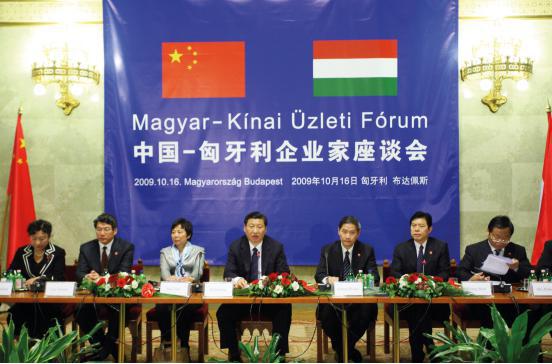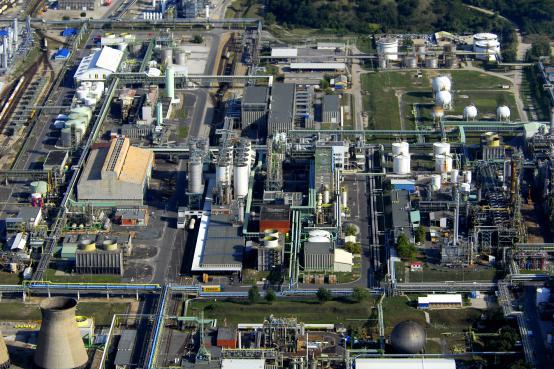Sino-Hungarian Borsod Industrial Zone

2. Planning and industry positioning
The Zone is led by chemical and biochemical industries and at the same time is developing the logistics, light and mechanical industries. Based on the synergy and integration effects and other characteristics of the chemical industry park, the Cooperation Zone has adopted the mode of “developing the old with the new, and integrating industries” to further develop itself, that is, relying on the mature core chemical industry and supporting infrastructures and service facilities to develop the established business areas such as the existing chemical industry area, public works area and life service area, as well as expanding and focusing on the development of the infrastructure in the chemical-bio-chemical area and logistics-light industry areas. The approach is meant to attract investments from competitive domestic and foreign manufacturers who work in line with the development planning of the Zone.
Covering an overall planning area of 6.15 square kilometers, the Cooperation Zone will give full play to the leading role of BC, developing an integrated industrial chain with global competitiveness. It is projected to become a processing and manufacturing park with the leading chemical and biochemical industries in Central and Eastern Europe and to serve as a model of China's overseas industrial parks. The cooperation zone currently has acquired 4.58 square kilometers of land, of which 2.2 square kilometers has been developed. The Cooperation Zone will make full use of the existing conditions and carry out overall planning of areas for the development of the chemical industry, chemical-biological industry, logistics-light industry, public works, “three wastes” treatment and life services. The total planned investment in the Cooperation Zone is about 3 billion dollars, of which 800 million is devoted to infrastructure investment. It is forecast to register sales revenue of around 3 billion dollars per year, create about 1,500 local jobs and attract more than ten companies to operate in the Zone.

[Photo provided to chinadaily.com.cn]
3. Preferential policies
1). Investment subsidies and services
The Cooperation Zone is located in the European Union and meets a number of EU requirements for subsidies. As the Cooperation Zone is located in the northeast of Hungary it also enjoys the largest subsidies from the Hungarian government. The Zone signed a Strategic Cooperation Agreement with the Hungarian government on February 12, 2013 when Hungary’s Prime Minister Viktor Orban paid a state visit to China. The Hungarian government will extend more preferential policies to the Cooperation Zone in the fields of energy prices including that pertaining to natural gas, investment subsidies and taxation.
2). Investment services and consulting
The HIDA will send special personnel to provide one-stop services to invite investment in business.
3). Land
The Cooperation Zone and Kazincbarcika town signed the Strategic Cooperation Agreement of China-Hungary BorsodChem Economic and Trade Cooperation Zone and Kasinzbatka Town, indicating that local government offers policy support for the acquisition of land for the growth of the Cooperation Zone, and for its reasonable land demands, and promises to assist acquisition activities in accordance with legal procedures. The property tax levied by the local government on the Cooperation Zone will remain unchanged for ten years from 2014. And the Zone will be exempted from land tax under the premise that the existing number of employees in the Zone is guaranteed. The local government will properly reduce land and property taxes for new investment projects and for newly-built companies. The land and property taxes will be exempted for the first three years, and halved for the next seven years.
4). Business tax
While guaranteeing the number of employees in the Cooperation Zone, the local government has implemented a preferential policy for the refund of business tax since 2014, refunding 30 percent of the business tax for the fiscal year 2014 (not less than 20 million forints ($ 76 thousand) and not more than 50 million forints ($ 190 thousand).

Manufacturing devices [Photo provided to chinadaily.com.cn]







